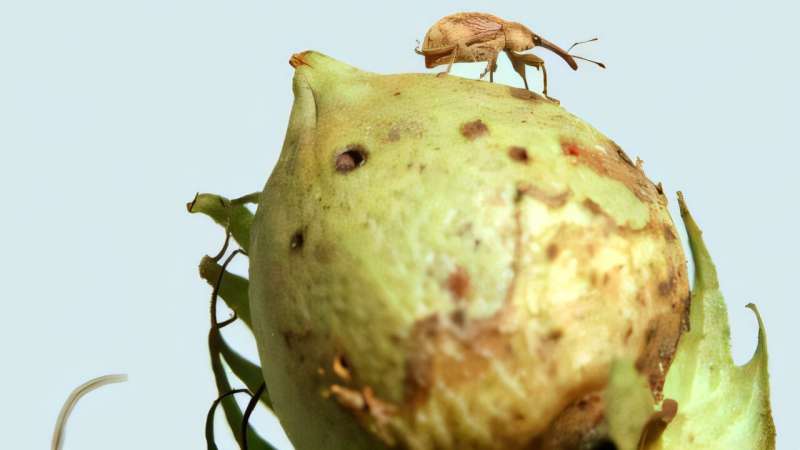Recent advancements in gene editing have led to the development of crops that are resistant to insect pests. A team of international researchers, spearheaded by scientists from the Brazilian Agricultural Research Corporation (EMBRAPA) and the Genomics for Climate Change Research Center, has published a study in the Biotechnology Journal, detailing how gene editing can enhance the production of α-amylase inhibitors in plants, making them less palatable to pests.
Insects that consume starch-rich crops, such as corn, peas, and beans, pose significant threats to agricultural productivity. Historically, wild plants evolved α-amylase inhibitors to safeguard their seeds against these pests. However, human domestication of these plants has often reduced the presence of these natural defenses. The new research highlights how gene editing technologies, particularly the CRISPR technique, can counteract this trend.
Enhancing Pest Resistance through Gene Editing
According to Marcos Fernando Basso, a researcher at the Genomics for Climate Change Research Center and the article’s lead author, the past two decades have seen substantial progress in understanding and utilizing α-amylase inhibitors. The research team focused on identifying genes responsible for producing these inhibitors and assessing their effectiveness against insect pests.
Basso noted, “In the early 2000s, significant advancements included the prospecting of genes encoding α-amylase inhibitors, evaluating their specificity against α-amylase enzymes in both insect pests and non-target organisms, and developing transgenic plants that overexpress these molecules.” Such innovations have laid the groundwork for future applications in pest control.
Traditional transgenic approaches, which involve inserting genes from one species into another, have deterred some biotechnology and food production companies. The concern over market acceptance and regulatory costs associated with genetically modified organisms (GMOs) has often limited the development of new pest-resistant crops.
Targeting Major Agricultural Pests
Common pests like bedbugs, beetles, and weevils produce amylase enzymes that break down starch in plants, leading to significant economic losses. The research specifically highlights the bruchid beetles, known for damaging stored grains. These pests can reproduce rapidly in environments rich in food, making them a priority for pest control technologies.
Interestingly, α-amylase inhibitors have shown effectiveness against various other pests, including the boll weevil, which feeds on cotton, and the coffee berry borer, a notorious pest of coffee seeds. The researchers emphasize that increasing the production of these inhibitors through gene editing could provide an effective means of pest management while ensuring that human and animal consumption remains safe.
The potential regulatory advantages of using gene editing techniques are significant. By modifying existing plant genes rather than inserting foreign ones, new crop varieties may not be classified as transgenic by the National Technical Commission on Biosafety (CTNBio). This distinction could facilitate broader market acceptance and commercialization prospects for agribusiness firms.
As Basso concluded, the application of CRISPR technology allows for precise genetic modifications that can enhance the effectiveness of α-amylase inhibitors in crops, offering a promising pathway for sustainable agricultural practices in the years to come.
This research represents a significant step forward in the quest for pest-resistant crops, aiming to balance agricultural productivity with environmental safety. The findings will likely influence future agricultural strategies, emphasizing the critical role of biotechnology in food security.







































































